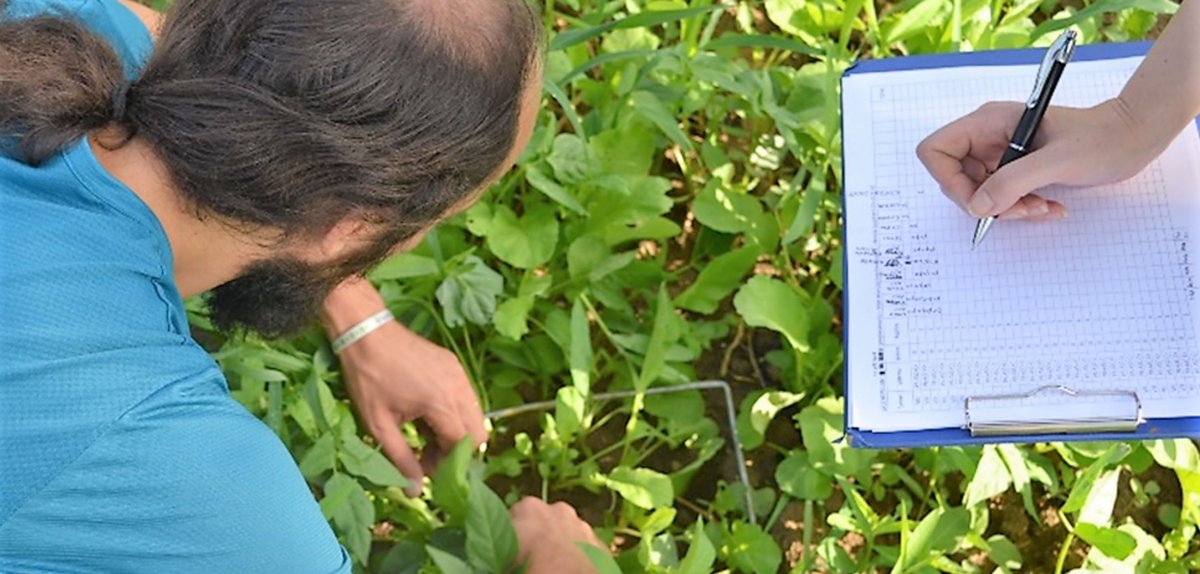News article 1 AGROECOSeqC
The EJP SOIL project AGROECOSeqC “AGROECOlogical strategies for an efficient functioning of plant - soil biota interactions to increase SOC sequestration” towards the ecological intensification of agriculture
On November 1st, within the European Joint Programme Cofund on Agricultural Soil Management (EJP SOIL), the project AGROECOseqC has started, coordinated by Alessandra Trinchera from CREA Agriculture and Environment (Italy), and the French co-coordination of Sebastyien Fontaine from INRAE (Institut national de recherche for agriculture, alimentation et l'environement, France). The project has as participants Consejo Superior de Investigaciones Científicas, (CSIC), Aarhus University with the Danish Center for Food and Agriculture (AU-AGRO), the Agricultural Research and Policy General Directorate of Turkey (TAGEM), the Lithuanian Agriculture and Forestry Sciences Center (LAMMC), the Dutch Wageningen University & Research (WR), the Belgian Center Wallon de Rechearches Agronomiques (CRAW) and the Austrian University of Natural Resources and Life Sciences (BOKU).

The three-year project aims to test different cropping systems at increasing agroecological intensification to identify the best agronomic strategies for improving soil carbon sequestration and reducing greenhouse gas emissions, via increasing ecosystem biodiversity.
The project will benefit from a network of long-term European experimental devices to investigate how higher plant diversity (i.e., the introduction of agroecological service crops, agroforestry, etc.) and reduced external inputs can promote a better synchrony between plant nutrient demand and soil nutrient availability, mediated by degradation / resynthesis of soil organic matter by microbial biomass. Indeed, the composition and activity of the soil microbiota, shaped by plant biodiversity through rhizodeposition, N-P uptake, microbial symbioses and trophic cascades, will be studied in deep as main actors involved in soil C and nutrient cycles.
The project will investigate the functional diversity of the plant-fauna-microbiome complex, nitrogen leaching, GHG emission and C-sequestration, crop yield and biomass production at nine experimental core-sites in the EU, comparing them with less conservative systems. The main innovation of AGROECOseqC is its holistic assessment of the functional biodiversity of the agroecosystem, considering all players involved in the flow of carbon and nutrients and their interrelationships.
The potential impact of AGROECOseqC will arise from the possibility of identifying different agroecological strategies (conservation agriculture, organic agriculture, agroforestry) as a potential solution for the reduction of C loss in agricultural soils in the long term, with different effectiveness and sustainability in the various European pedoclimatic zones.
AGROECOSeqC is a project funded by the European joint program "EJP SOIL" (Framework Programme Horizon 2020), which includes 24 countries aiming at improving understanding of agricultural soil management by targeting major societal challenges, including climate change mitigation and adaptation, food security, ecosystem services and soil education in Europe. The general objective of EJP SOIL funded projects is to fill research and development gaps identified by the “Roadmap for the European Joint Program SOIL”.
